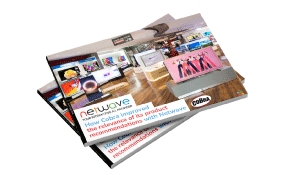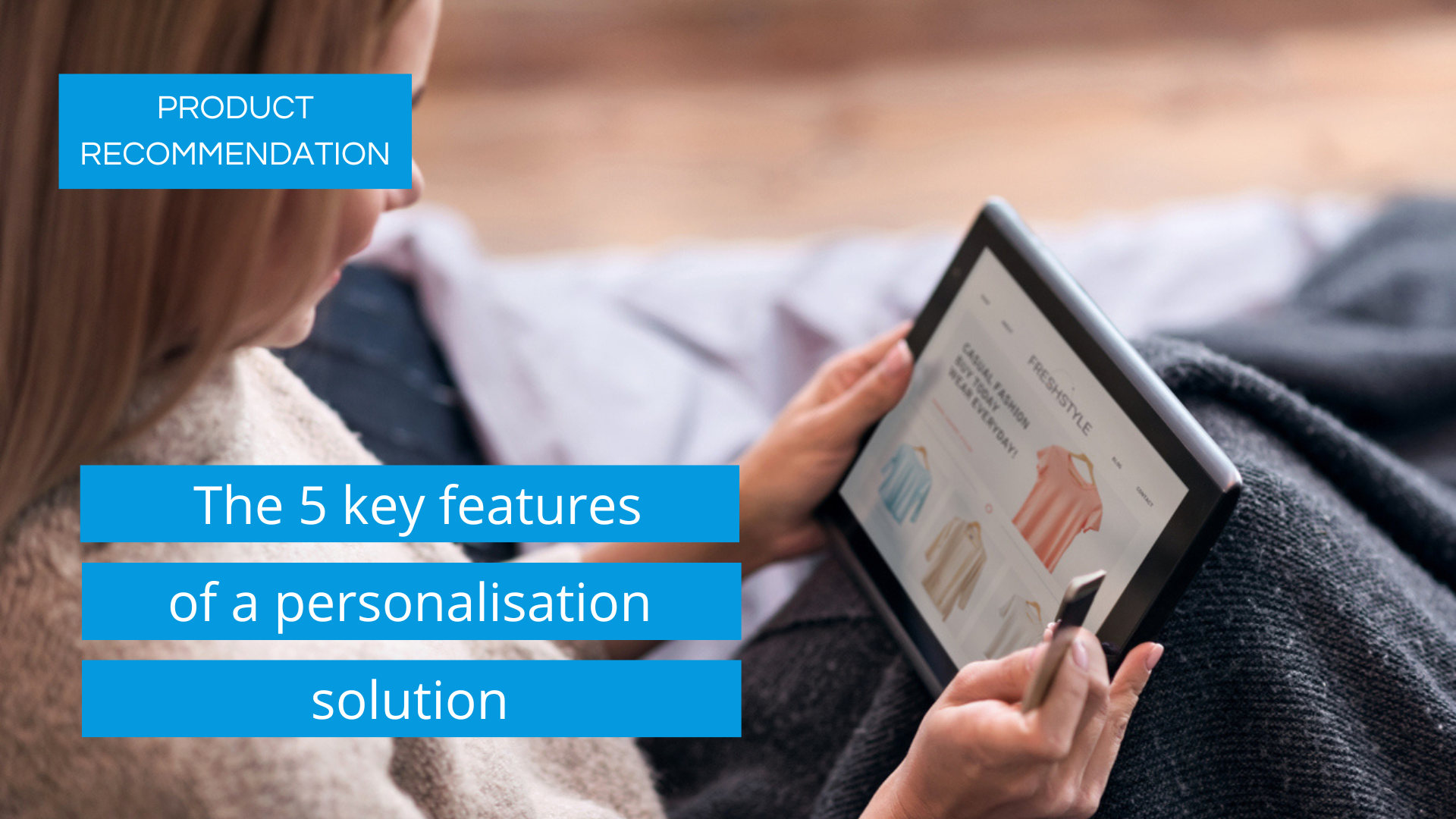Are you thinking of adopting a personalised product recommendation platform? It's a great idea! It will help you improve your customer experience and save time in your sales animation. It will even allow you to increase your sales significantly! However, choosing the right tool that will enable you to create real value is important. For this, ease of configuration is essential. Here are some explanations.
Personalised product recommendation: the importance of an easy-to-set-up solution
Topics: E-commerce, Personalisation, Recommendation
[Case study] How Cobra improved product recommendations with Netwave
Founded over forty years ago, Cobra is a specialist in distributing Hifi and TV products. Its philosophy is its triptych of expertise, selection, and price. Cobra brings its know-how to a selection of the latest products: hi-fi, home cinema, TV, video projection, multiroom, mobile sound and headphones.
Topics: E-commerce, Recommendation
Product recommendation: the 5 key features of a personalisation solution
Making product recommendations on your e-commerce site: yes, but how? It is not always easy to see clearly among all the personalisation solutions available on the market. Although your choice depends mainly on your objectives and specificities, certain functionalities remain essential for relevant recommendations. Let's find out!
Topics: Recommendation
Personalized recommendation: don't make the mistake of choosing volume over relevance
About real-time interaction on merchant sites, one of the most value-destroying mistakes is certainly to prefer volume to relevance.
The personalized product recommendation is a service provided to the user that meets 2 of your main objectives:
- increase your turnover / visit thanks to strong relevance,
- but also improve a more fluid and productive user experience for your visitors.
When a recommendation service is implemented, the first reflex is to maximize the number of recommendations produced throughout the Internet user's navigation. And for each recommendation to present a significant number of products.
This is a mistake and is done to the detriment of the objectives pursued.
Product recommendation does not follow the same rules as natural site merchandising.
It is important that the user identifies the recommendation as a personalized service in relation to his actual situation.
It must therefore be accepted that, in certain situations, relevant advice may not be provided due to a lack of significant information from navigation.
In this case, it is better to wait until the user's navigation offers more actionable elements to obtain a relevant recommendation, rather than producing obligatorily a recommendation.
If the Internet user only perceives the recommendation as an automatic process that is not really personalized, he will no longer pay attention to it. It will become, at best, unproductive. At worst counterproductive, depending on the degree of perception of unwelcome pressure.
A good in-store salesperson seeks above all to obtain information allowing him to determine in what situation his visitor in order to provide him with relevant advice before making a recommendation: is he in the process of buying? information search? does he have an attachment to a brand? a defined budget? technical prerequisites? ... etc.
Otherwise, he and his recommendation are not perceived as a service but as a pressure and permanently taint the “trust” dimension of the relationship with the brand. Carpet merchant, says popular wisdom...
On a merchant site, it's the same. Producing recommendation banners with each navigation, even if you are not able to do so with relevance, will cause this recommendation to be considered by the Internet user as non-personalized "advertising". An advertising exposure that does not take into account his situation. Pure and simple pressure.
Without paying attention to his expectations.
And this will be accentuated by the fact that the sites often define recommendation banners using the same design as that used by the natural merchandising of the site.
The impersonal nature of the “wording” that accompanies these banners reinforces this phenomenon: “Discover the top sellers”; “Other Internet users also viewed”, …
Preferring relevance to volume, on the other hand, allows the recommendation to be accompanied by targeted communication that appeals to the Internet user:
"Fan of the LG brand, discover the new OLED products", "Passionate about innovation? Here is a selection just for you"...etc.
In conclusion:
1/ it is better to recommend when there is really something to recommend,
2/ to accompany this recommendation by specifying the nature of what is recommended and why it is recommended at this precise moment.
Otherwise the recommendation will not be perceived as a service provided to the Internet user but as a simple highlighting of products responding to a simple wish to destock.
Know how to offer your visitors what they expect: real advice based on a real understanding of their expectations.
Recommend less. Recommend wisely.
Topics: Artificial Intelligence, Recommendation




